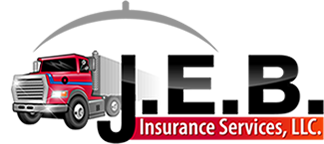Filing the proper documents for commercial truck insurance is a significant responsibility for any trucking company. These filings provide legal proof to regulators that your trucking business carries liability coverage at the state-mandated minimums. This protects the public by guaranteeing your company can cover damages if your commercial trucks are involved in an at-fault accident.
Trucks are so large and heavy compared to passenger vehicles, so they can cause extensive property damage and bodily injury when a collision occurs. Hazardous material haulers also require specialized insurance to cover potential contamination risks. Submitting accurate, up-to-date filings is not just a best practice – it’s required by law to safely share the road. Staying compliant ensures your company meets its financial responsibility if the worst happens on the road.
One of the best things your trucking company can do is understand and comply with the trucking and commercial truck filings required by federal and state laws.
Motor Carrier Filings
The Federal Motor Carrier Safety Administration (FMCSA) requires interstate trucking companies that operate commercial vehicles over 10,000 lbs to register and file proof of minimum levels of insurance. This is done by filing a Motor Carrier (MC) number.
To obtain an MC number, trucking companies must submit:
- Form MCS-150 – Provides company information like name, address, number of vehicles, cargo hauled, etc.
- Form BMC 91 or 91X – Proves the company has the federally mandated minimum insurance. This details coverage details such as policy number, insurer, effective dates, limits, covered trucks, etc.
- Form BMC 34 – Lists agents authorized to request DOT numbers for the company’s vehicles.
- BOC-3 (Designation of Agents for Service) – Provides contact details for the insurance agent who will receive legal correspondence.
In addition to these main filings, the FMCSA regulates accident registers, the designation of process agents, and other compliance paperwork. Interstate motor carriers must renew and maintain current filings to legally transport goods across state lines.
State Insurance Filings
In addition to the federal requirements, trucking companies must comply with state commercial insurance laws. Most states mandate minimum liability coverage with larger amounts required for trucks over 26,000 pounds GVWR(Gross Vehicle Weight Rating). For example, in Texas, state law requires $500,000 worth of liability insurance for trucks that weigh over 26,000 pounds and are carrying household goods.
Cargo and uninsured/underinsured motorist coverage is also commonly required. To operate legally in a state, truckers must file proper proof of this insurance. For example, Texas requires Form E – Uniform Proof of Liability Insurance and self-insurance filings. Other states have similar forms. Keeping current certificates of insurance on file for each state of operation helps avoid fines and license suspensions.
On the other hand, there are a few states that do not require separate state-level insurance filings beyond the federal requirements.
Insurance Carrier Filings
After purchasing a commercial truck policy, insurance carriers also submit several filings on the trucking company’s behalf:
- Form MCS-90 – Filed with the FMCSA, this shows the insurer will pay up to the federally required minimums if the trucker’s policy limits are lower.
- BMC-35 – Lists all covered vehicles with their VINs and policy information. Updates must be filed within 30 days of adding/deleting vehicles.
- IFTA Decals Request – Filed to get IFTA stickers proving proper fuel tax licensing.
- UCC-1 Financing Statement – Protects the insurance company’s financial interest in any covered vehicles they are financing.
- Form H – Reports a commercial truck accident to the state’s Department of Transportation.
With so many different agencies and departments in the picture, from federal to state to insurance carriers, staying on top of all of these filings is a challenging but necessary task for commercial truck drivers. Failing to comply can lead to business-changing setbacks and penalties. Finding an experienced commercial truck insurance agent who handles these submissions is a must. They have the know-how to ensure all necessary filings are filed accurately and quickly.
Navigating Any Risk With J.E.B. Insurance Services, LLC
Commercial truck insurance involves complex filings, limits, and regulations. The agents at J.E.B. Insurance Services, LLC are here to help take the confusion out of the process. We’ll evaluate any risks that may apply to your trucking company, walk you through legal requirements, and offer coverage at rates you can’t turn down. Contact us today and let’s review your options and ensure you can hit the road with confidence. J.E.B. Insurance is licensed in Texas, Florida, Iowa, Nebraska, Illinois, North Carolina, South Carolina & Tennessee.


